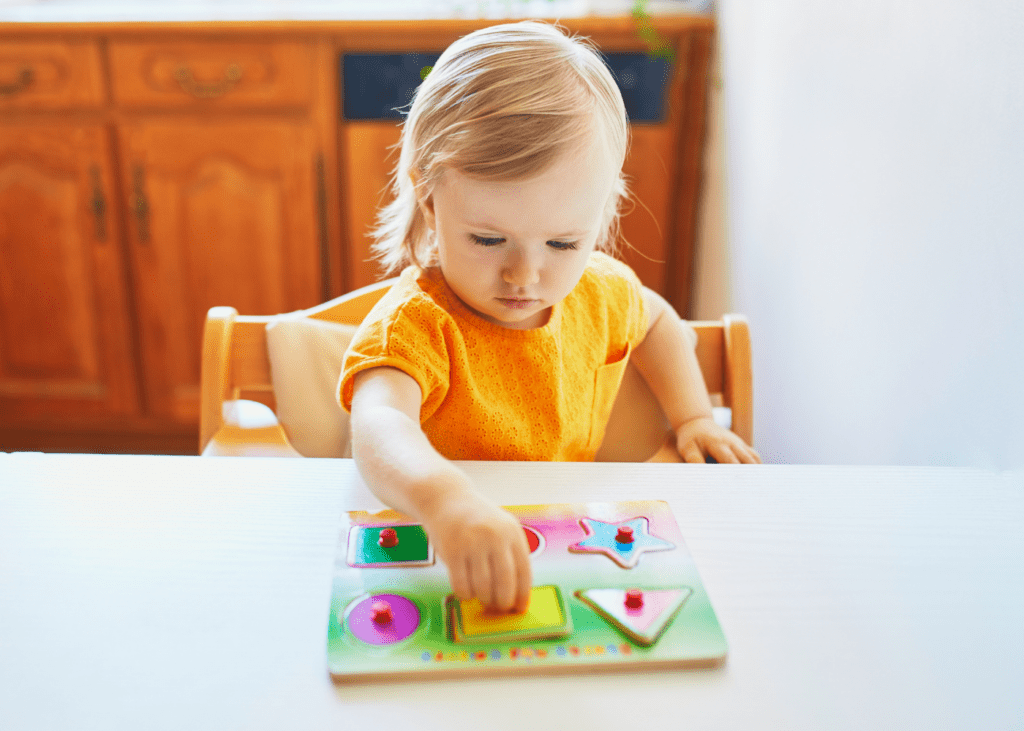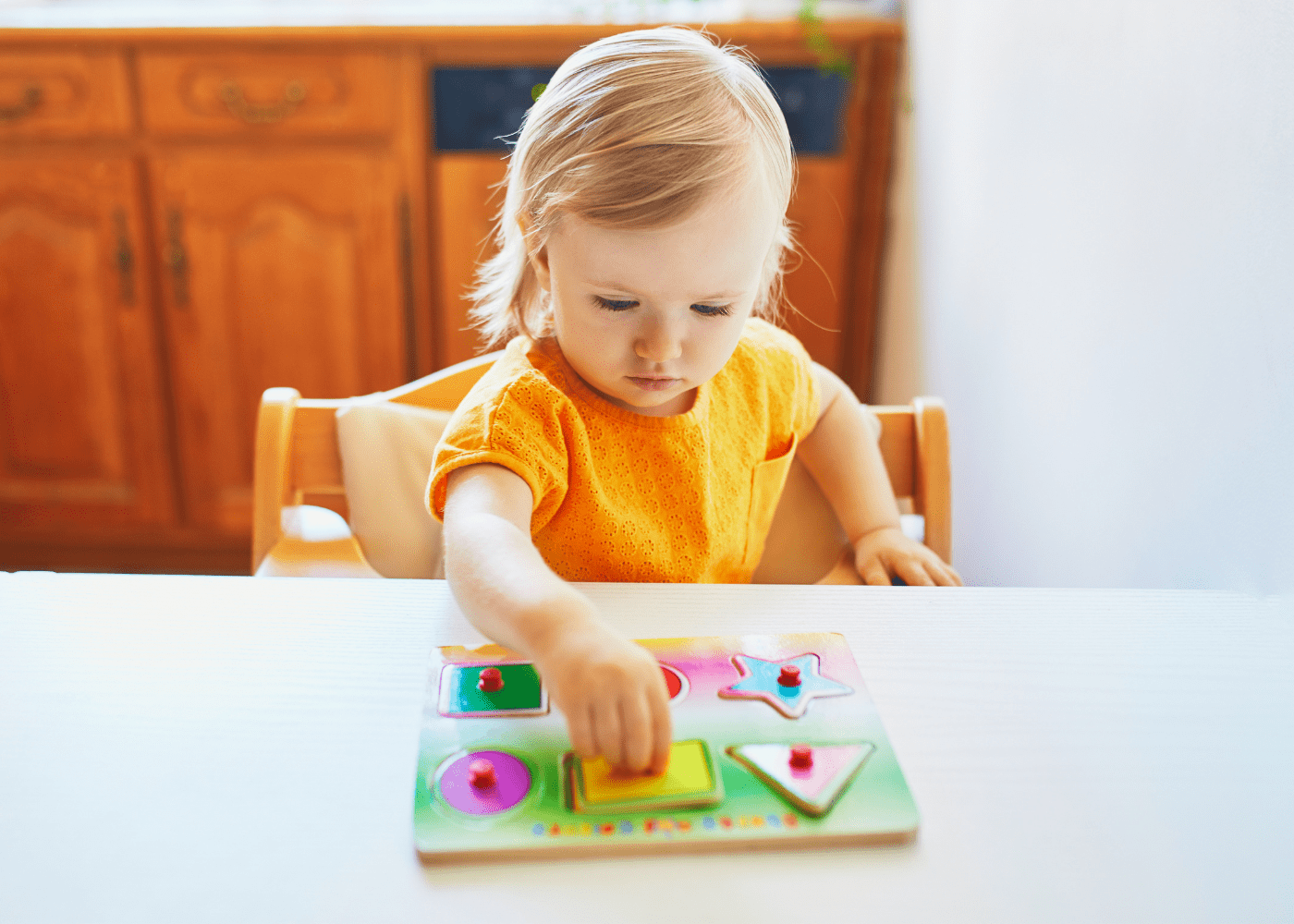As a parent, you want to do everything you can to ensure that your child has a successful future. One important way to help them prepare for success is to promote their cognitive development. This doesn’t have to be difficult – there are many fun, easy ways that you can do this at home!
Cognitive development is a process that begins in infancy and continues into adulthood. It involves the acquisition and use of knowledge and skills. Cognitive development activities for preschoolers can help them develop important cognitive skills such as memory, attention, problem-solving, and critical thinking.
Of course, each child is unique – The list below contains typical developmental milestones. They are predictable milestones children reach by age 5, but it’s important to remember that each child has their own rate of growth. Your Dr. or pediatrician will be able to give you specific milestones for your child if you are unsure of what to expect for them specifically.
According to HealthLink BC, by the age of 5, most children will have the ability to:
- “Know their address and phone number.
- Recognize most letters of the alphabet.
- Can count 10 or more objects.
- Know the names of at least 4 colours.
- Understand the basic concepts of time.
- Know what household objects are used for, such as money, food, or appliances.” (Source here!)
While, sure, these could be practiced by fact memorization over the years, that’s not very fun! So, in this blog post, we will share some fun activity ideas that will help improve your child’s cognitive skills (and tell you why each skill is important).
Cognitive development for preschoolers – Where are they at?
There are two very important researchers and pshychologists in the realm of children’s development. Both had theories about the way children learn and grow, and both largely influenced the way we teach children today. Of course, though, current research continues to seek and articulate best educational practices at all ages.
Enter, Jean Piaget and Lev Vygotsky!
Jean Piaget
Piaget was a Swiss psychologist born in 1896 (source). His research separated cognitive development into four stages:
- Sensorimotor stage: Birth to 2 years
- Preoperational stage: Ages 2 to 7
- Concrete operational stage: Ages 7 to 11
- Formal operational stage: Ages 12 and up
That would put preschool learners in the Preoperational stage. Here, according to Very Well Mind, preschool-aged children are beginning to think symbolically. They can use both words and pictures to identify objects. They are very much ‘egocentric’ – Looking at the world from their own perspective and still largely unable to see things from others’ perspectives. Finally, their language and thought processes are developing, but their thinking is still quite concrete. This is why using real-world learning materials and real-world examples is so helpful for their learning.
Lev Vygotsky
Also born in 1896, but in Russia, was Vygotsky, a psychologist that studied the role of social and linguistic learning in children’s development. While Piaget emphasized the learning processes from within the child, Vygotsky recognized the external factors that can influence a child’s development.
Saul Mcleod, PhD, summarized Vygotsky’s work here. Essentially, Vygotsky believed that language and culture were a big factor in children’s learning and that adults play the role of the ‘knowledgeable other’ for children of preschool age. He believed children have a Zone of Proximal Development, where knowledgable others and technology/tools can be used to help the child learn.
These are super quick overviews of their work, but there’s a lot more to it! If you want to learn more about these two pioneers, check out this article.
Cognitive development activities for preschoolers
Needless to say, cognitive development is an important part of a child’s overall development. It includes the ability to think, reason, and remember. There are lots of activities for preschoolers that can help stimulate cognitive development. The best part? These complex thinking processes can actually be simple and easy to teach at home!

Here are some cognitive activities that you can do with your preschooler:
Counting games
There are many counting games that you can play with your child. Counting is an important cognitive skill that helps with number recognition and understanding. Even simple games like hopscotch can teach this skill. Another way to incorporate this into everyday life is to practice counting things in the correct order. You could count the number of dogs you see on a walk or practice counting how many of their favorite toy they have, for example.
Pre-K pages has an awesome list of 40 counting games if you need some inspiration!

Puzzles
Puzzles are another great way to promote cognitive development. They help with problem-solving skills, hand-eye coordination, decision making, and memory. Start with easy puzzles so that your little one isn’t discouraged from this activity, then move on to more complex puzzles as their ability improves.
Another thing to think about here is that puzzles are more than just the traditional jigsaw puzzle! Finding age-appropriate puzzles that challenge their problem-solving skills while emphasizing other skills like numbers, letters, or shape recognition is a great way to develop multiple cognitive abilities at once.
Memory games
Memory games are a fun way to improve your child’s memory skills. There are many different memory games that you can play from an early age. For an awesome list of examples, check out Early Impact’s article! By playing fun games like Bug in a Rug or Jungle Story, you can help support brain growth and cognitive growth, which are important parts of a preschooler’s cognitive development!
These are just a few cognitive activities that you can do with your preschooler to help build cognitive skills from a young age. When choosing activities for your child, be sure to pick games and activities that are appropriate for their age and abilities. For the most success, choose activities that align with your child’s interests! This keeps things fun and enjoyable while supporting cognitive skills within their abilities.
How to promote your child’s cognitive development
While you can choose to do developmental activities with your children that specifically develop cognitive skills, you can also make encouraging cognitive development a part of your daily routine.
Here are some ways to do this:
Encourage questions
Yes, the constant question of “why” can be tough to hear over and over again. But encouraging your child to ask meaningful questions can help them learn how to think critically and solve problems. You might ask their opinions on things or ask them to help solve problems, for example.
To model this: Ask them questions, too! As you explore the world around you, ask questions that encourage logical thinking like “why do you think this bird has red feathers and that one has blue ones?” or “where do you think the bears go in the winter?” You can help guide them to correct answers, but asking young children thought-provoking questions will excite them (their opinion will be heard!) while giving them space to develop and share their ideas.

Read together
Reading is about more than just literacy. Reading also helps children develop language skills, learn and explore new concepts, and develop their imagination. Nursery rhymes are a good example, because they help children develop memory, imagination, and concentration skills, according to Boys and Girls Nursery. Reading also helps develop the child’s attention span! (Listening to an entire book requires a lot of focus in their early years!)
Many modern children’s books also model important life concepts like self-regulation, emotional growth, and social concepts like inclusion. So, while they are great for cognitive development and increasing language skills, reading to your children can promote many important skills and concepts.
Play games together
Giving space for your children to play and explore physical games lets little ones increase their independence. But, by playing games together, you can support their learning while having quality time together (and practicing social skills!). Try playing counting games, memory games, and completing puzzles together to develop these skills in the early childhood years.
Kids also love simple games like Red Light, Green Light! Not only do many preschoolers love playing active games like this, but it helps them learn to follow directions and listen carefully for instructions.
Board games are another fun group activity. Not only does playing through a full game help with patience, but they help develop critical thinking skills and cognitive development, too.
You could also ask them to create obstacle courses with you by grabbing simple objects like hula hoops and skipping ropes. This is a simple game that promotes problem-solving while working on gross motor coordination through physical activity.
Encourage your child to experiment
Whether experimenting with pretend play or simply encouraging your kids to figure things out about the world around them, both are important skills for preschool years. Encourage your kids to try new things and explore the world around their curiosities. Who knows, you may learn something too!


Leave a Reply